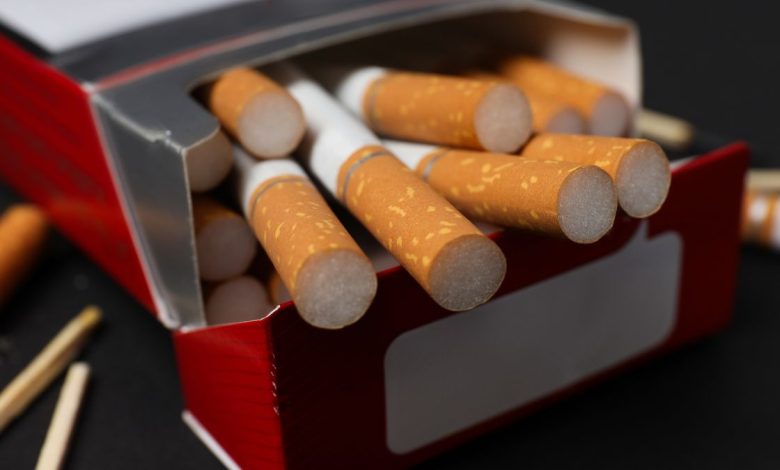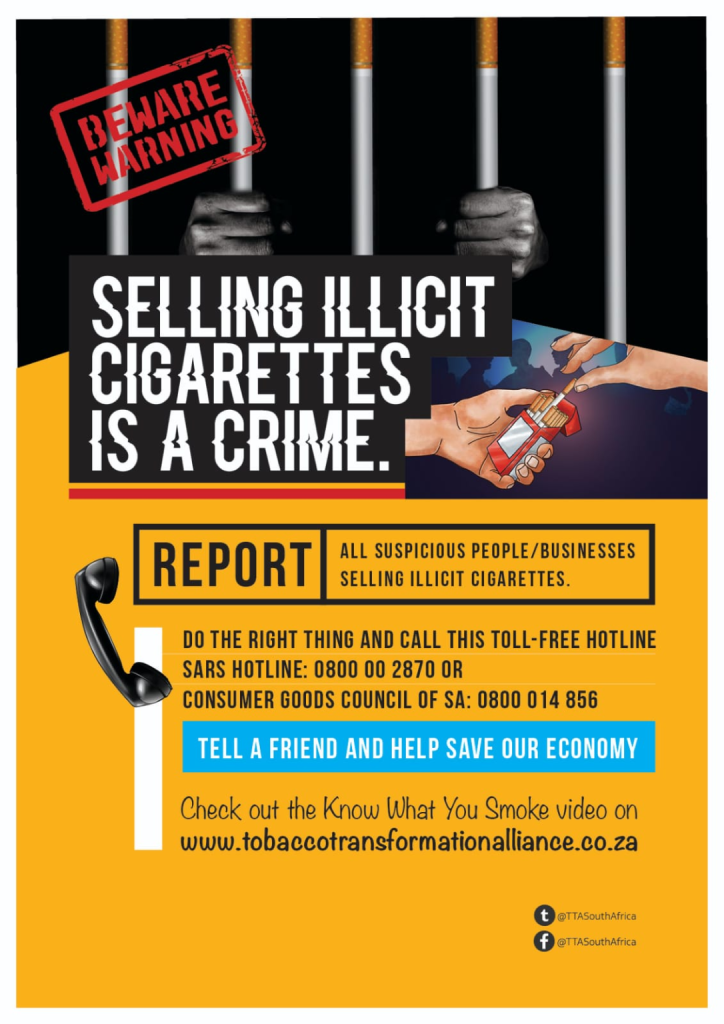The Policy Fix: What South Africa Must Do to Curb Illicit Cigarettes

The surge in illicit cigarettes has become a national crisis in South Africa. It’s robbing the country of billions in tax revenue, endangering public health, and crippling legal businesses. As illegal cigarette sales now account for nearly 70% of the market, urgent intervention is critical.
Let’s break down what South Africa must do to fight this growing problem, and how organisations like SATTA are leading the charge.
The Rise of Illicit Cigarettes in South Africa
The illicit cigarette market has exploded in recent years. What used to be a 30% share pre-pandemic has now jumped to an alarming 70%. This massive increase followed the COVID-19 tobacco ban, which unintentionally boosted the illegal trade.
Learn how global frameworks could help curb South Africa’s black market in our article: Could the WHO Protocol Be the Game-Changer in Fighting Illegal Cigarettes?
Billions Lost: The Economic Toll
Every year, illicit cigarette sales cost South Africa around R28 billion in lost taxes. That’s money that could fund public services like healthcare, education, and policing. Legal manufacturers, farmers, and retailers have also felt the blow.
Francois van der Merwe from SATTA warns, “We must act now to protect jobs and ensure that the tax base is not further eroded by illegal traders.”
How Illicit Cigarettes Harm Public Health
Illicit cigarettes often bypass any form of quality control. Without proper manufacturing standards, they may contain dangerous and unregulated substances. Smokers unknowingly inhale toxins that could be far worse than those in legal cigarettes.
These products are also more accessible to youth, given their low price and availability in informal outlets.
South Africa’s Farmers Are Paying the Price
The illegal market has devastated legal tobacco farming. Since 2019, the number of commercial tobacco farmers has dropped by over 21%. Many farms have shut down, unable to compete with dirt-cheap illegal products that flood township spaza shops.

Stronger Law Enforcement Is Non-Negotiable
SATTA urges the government to ramp up enforcement. Targeted inspections of spaza shops and informal retailers, where over 80% of cigarette sales happen must increase. Better coordination between police, SARS, and customs is also essential.
Discover the hidden dangers of buying illegal cigarettes in our latest article.
Why South Africa Needs a Track-and-Trace System
To combat illicit cigarettes effectively, South Africa must introduce a track-and-trace system. This technology allows every legal cigarette pack to be monitored from production to sale. It would make it harder for illegal products to slip through unnoticed.
Countries like Kenya and Brazil have already had success with similar systems.
Fixing Tax Collection Loopholes
SATTA advocates for a more robust tax collection system. The current one has gaps that smugglers exploit. Tightening this process would ensure that all manufacturers and sellers are held accountable.
Closing these loopholes would boost revenue and improve industry regulation.
Raise the Penalties for Illegal Traders
The penalties for selling illicit cigarettes are too weak to act as a real deterrent. SATTA suggests harsher punishments, including steep fines and jail time for those caught in the trade. Stronger laws would signal that South Africa takes this issue seriously.
Public Awareness Can Make a Difference
Changing consumer behaviour is key. SATTA’s “Buy Legal, Stay Legal” campaign aims to educate the public on how to spot illicit cigarettes and why they’re harmful. Features like the diamond stamp and pricing thresholds help consumers identify legal products.
Van der Merwe emphasises, “By educating consumers and urging them to report illicit sales, we can create a groundswell of support for legal tobacco products.”
SATTA’s Leadership in the Fight Against Illicit Trade
As the voice of the legal tobacco industry, the South Africa Tobacco Transformation Alliance (SATTA) is pushing for meaningful reform. The alliance regularly engages policymakers, proposes regulations, and leads campaigns to raise awareness.
SATTA’s ultimate goal? Cut illicit trade to 20% by 2030.
Making Illicit Trade a National Priority
To tackle this issue effectively, South Africa should declare the fight against illicit cigarettes a national priority. Appointing a dedicated Anti-Illicit Trade Coordinator would improve oversight and ensure accountability across enforcement agencies.
Only through national coordination can South Africa dismantle the networks fuelling this illegal trade.
A Roadmap for Real Change
Here’s what South Africa needs to do now:
- Boost law enforcement across informal sales points
- Implement a national track-and-trace system
- Tighten tax collection and close loopholes
- Introduce harsher penalties for illegal traders
- Launch widespread public education campaigns
- Work with industry leaders like SATTA to guide policy
Learn more about how new smoking regulations might increase black market activity in our article, ‘Proposed Smoking Regulations Could Boost Black Market, Says Expert.
Why This Matters for South Africa’s Future
Stopping the illicit cigarette trade isn’t just about protecting one industry. It’s about restoring jobs, safeguarding public health, and strengthening the national economy. The longer we wait, the harder it becomes to reverse the damage.
Time to Act
South Africa stands at a crossroads. The problem of illicit cigarettes can no longer be ignored. With committed leadership and community involvement, it is possible to reverse this crisis.
If you suspect someone is selling illicit cigarettes, report it now. For more information and to support the legal trade, visit the official SATTA website.



